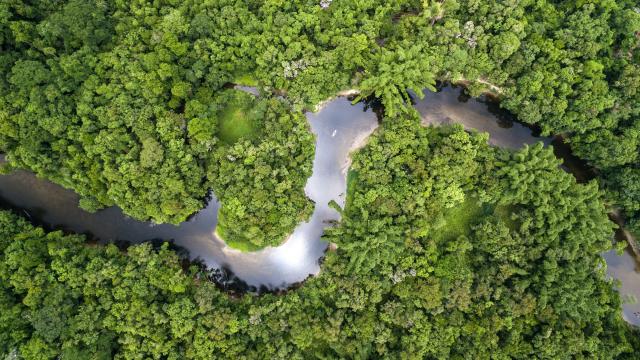
Nature in Net Zero Transition Plans
At the COP26 climate talks in Glasgow in 2022, the UK announced that it would become the world's first net-zero aligned financial centre.
As part of this, the government announced that by the end of 2023, companies and financial institutions (starting with UK-listed and regulated firms) will be required to show how they will cut their climate emissions to align to net-zero, in what are known as transition plans.
What are transition plans?
HM Treasury set up the Transition Plan Task Force to make sure these are the ‘gold standard’, leaving no room for greenwashing.
But for transition plans to truly set the 'gold standard’, they must be grounded on the scientific evidence.
And the science is clear: we won’t be able to keep global temperature rise below the critical 1.5°C if we do not use so-called ‘nature-based solutions’ to manage our impact on the natural world.
We now have affordable options in each sector of the economy to halve emissions by 2030. Many of these solutions rely heavily on natural systems to reduce net-carbon emissions and better protect communities. But for solutions to be effective, we also need to halt and reverse the damage to our world’s most important carbon sinks.
Why we need nature in transition plans
We cannot solve the climate crisis without tackling nature loss. So, in their transition plans, companies should explain how they will protect and restore nature as part of their transition strategy. This is the direction of travel for major sustainable finance frameworks. In doing so, we support goals and targets of the UK’s own Environment Act and the 2022 Kunming-Montreal Global Biodiversity Framework, of which the UK is one of 196 signatories.
WWF’s new report, 'Nature in Transition Plans: Why and How?' demonstrates how companies can integrate nature into transition planning frameworks. It shows how companies and financial institutions can take initial action and the tools available to get started. In doing so, they can deliver on net zero and work towards nature positive.
Such integration is in the interests of many. Green finance is the fastest growing sector in international money markets. Publishing rigorous, science-based transition plans that integrate nature can provide credible information to investors and secure the UK’s place as a world-class green finance centre. It can also help to channel finance towards net zero and nature positive economic activities that deliver value for business and society.
Nature should be part of transition planning, as:
1. Nature facilitates cost-effective climate solutions. Many nature-based solutions are the most scalable and cost-effective means to reduce carbon.
2. Avoiding nature loss can improve resilience of business and society to climate change damage.
3. Mitigation without guardrails can harm nature. Carbon-focused solutions must consider trade-offs with other social and environmental issues.
4. A holistic approach can reveal untapped opportunities. Holistic planning can identify key opportunities to reduce cost, increase efficiency and open channels of engagement.
5. An integrated approach is efficient and effective. A growing number of sustainability and climate disclosure frameworks, including the Task Force on Climate Related Financial Disclosures (TCFD), already recognise the need to approach nature and climate together.
If we want to ensure the long-term resilience of businesses, society and the economy, it is clear that transition plans must both safeguard nature and leverage its benefits to manage the impacts of climate change.
What happens next
The Transition Plan Taskforce is issuing regular Consultations in 2022 and 2023 to strengthen guidance on net zero transition plans.
Companies can get involved by reviewing the framework and responding to the Consultations.
First Call for Evidence for the 13 July 2022 - See WWF’s response
Second Consultation for the 28th February 2023 - See WWF’s response
Concurrent with the release of its 2023 status report on October 12, 2023, the TCFD has fulfilled its remit and disbanded. The FSB has asked the IFRS Foundation to take over the monitoring of the progress of companies’ climate-related disclosures:
https://www.ifrs.org/sustainability/tcfd